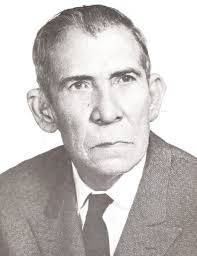
Laudelino Mejias
Composer
Laudelino Mejías was a Venezuelan musician and composer born in Trujillo, Trujillo state, on August 29, 1893 and died in Caracas, Capital District on November 30, 1963. Among all his compositions he is recognized as the author of "Conticinio", important piece within the Venezuelan repertoire. Mejías, an orphan from an early age, recognized his musical vocation as a spectator of retreat musicians. He studied the clarinet, an instrument that played in bands during his adolescence, and despite having received offers to specialize abroad, opted to stay in the country to take care of his grandmother, who had taken care of him after the death of his parents. In 1911 he was appointed deputy director of the Banda Philharmonic founded by the Spanish cleric Esteban Razquin, of which he was director from 1916. In 1922 he settled in Valera as director of the Lamas Band, and that same year he composed two of his waltzes more Famous: "Mirando al Lago", inspired by the Lake of Maracaibo, and "Conticinio", waltz that gave it international fame and that was inspired by the nostalgia for the Trujillo state. Later he lived in Ciudad Bolivar, where he was in charge of the state band for three years. During his career Mejías received numerous awards for his extensive and varied musical work, among which are "Alma de mi Pueblo" and the "Anthem to Victory". The Academy of Music of Rome awarded him the title of "Academic Teacher Honoris Causa" and was honored in life with his own statue, which today adorns the Municipality of the capital of Trujillo State.
